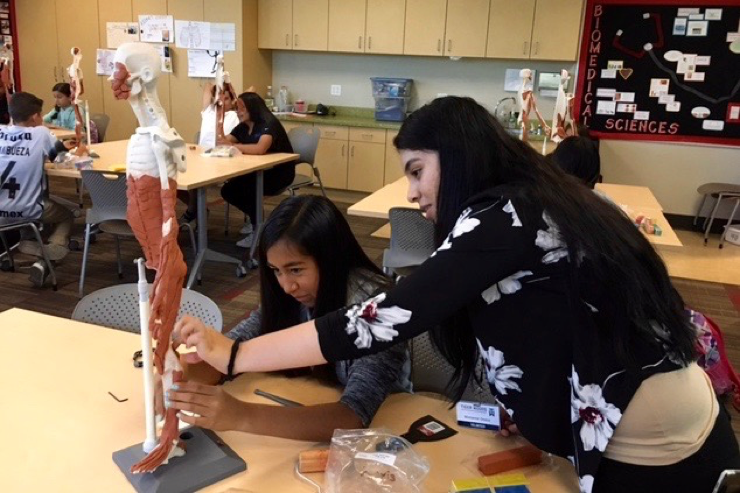The Benefits of Internships

From building vital skills to giving students the upper edge when applying for jobs, the benefits of internships are vast and wide. What’s more, studies show that students not only walk away from internships feeling career-ready, but 85% of companies look to their internship programs to recruit for their full-time workforce. In fact, according to a 2017 Internship and Co-op Report, published by the National Association of Colleges and Employers (NACE), organizations converted 51.3% of their interns into full-time hires.
And going beyond the statistics and studies, we believe the most essential takeaway from an internship is the personal confirmation that the path chosen is one where there is interest and passion. Below are five important benefits students can gain from internships:
- Professional experience – I knew from an early age that I wanted to pursue education as a career but it wasn’t until one of my first summer jobs that I confirmed it. I worked part-time at a summer camp for a local city recreation department. My job entailed planning and directing activities for a group of students age 5 – 14. The opportunity to learn, write lessons, and work directly with kids solidified that I was in the career field where I wanted to be.
- Networking – Internships provide the opportunity for relationships to form that could be crucial to finding future work. Putting social skills in action at the workplace helps supervisors and managers get to know you – and sometimes it is as simple as that. But sometimes the return isn’t as immediate. Years down the road there may be an opportunity to work with a coworker encountered during an internship. Those who reach out and let people get to know them are remembered not only for good work, but for personality and social prowess.
- Skill development – Having the opportunity to develop what was learned in school in a real world setting is invaluable. Interns learn how to be flexible and adaptable in work settings and may find that what seemed simple in a classroom setting is very different when you are sitting at a desk, or out in the field. The opportunity to shadow others and learn from them puts the young worker at a distinct advantage over those that don’t consider an intern role.
- Personal perspective – I recall thinking as I was growing up that being a teacher would be great fun – and it is – however, it is a lot of work if you want to be the best. My early intern days helped me learn the benefits of planning ahead, creating back up ideas, and being open to different approaches from others. Good teachers learn from their colleagues and build a synergy that builds off their passion and interest. I suspect that in other career fields, internships provide the same dose of reality. The job is fun and interesting, but to do it well it takes time, energy and passion.
- Job Offer – While not always the outcome, a job offer is always an exciting possibility for the intern and usually the result of someone being able to vouch for the skills and adaptability of the individual to the environment.
Ambitious students are doing their homework, researching companies and organizations that are a good fit for their interests and skills and have lined up their internships far in advance of summer. Some accept unpaid internships as a way to learn and assess their skills for the work being done, while others find paid opportunities that offset living expenses and gain valuable experience as a result. Regardless of the details, it’s clear that the benefits of any internship far outweigh taking the summer off and just rolling the dice after graduation.
Redefining what it means to be a champion.


